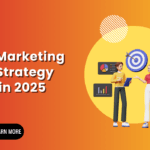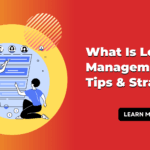Digital marketing involves the use of various digital channels to market products and services to consumers. This type of marketing involves the use of websites, mobile devices, social media, search engines and other similar channels. Digital marketing became popular with the advent of the Internet in the 1990s.
Digital marketing is often thought of as a new way for companies to approach consumers, but it is the same as traditional marketing in many ways. Some companies combine digital and traditional techniques in their strategies, and they face challenges related to implicit bias.
If a marketing campaign involves any type of digital communication, it’s considered digital marketing.
Why is digital marketing important?
Marketing is a crucial part of business. However, online marketing has become increasingly important because of how accessible digital channels are. There were 5.16 billion internet users globally in 2023 alone.
There are many ways to use digital marketing to communicate with your target audience. Additionally, online marketing has minimal upfront costs, making it a cost-effective marketing technique for small businesses.
Types of digital marketing

There are as many specializations within digital marketing as there are ways of interacting using digital media. Here’s a list of some of them:
Search engine optimization
Search engine optimization (SEO) is a type of marketing that helps your business appear higher in search results. It’s important to use SEO as a science because you need to research different contributing factors that can influence your ranking in search engine results pages (SERPs).
Today, the most important elements to consider when optimizing a web page for search engines include Quality of content; engagement with users; mobile-friendliness; and the number, quality, and inbound links to your site.
To be successful in search engine optimization, you need to optimize technical SEO, which is all the back-end components of your site. This includes URL structure, loading times, and broken links. Improving your technical SEO can help search engines better navigate and crawl your site.
Social media marketing
Social media marketing is a way to boost brand awareness and traffic by engaging people in discussions online. You can use social media marketing to highlight your brand, products, services and more. With billions of people spending their time engaging on social media platforms, focusing on social media marketing can be worthwhile.
The most popular digital platforms for social media marketing are Facebook, Twitter, and Instagram. LinkedIn and YouTube are also popular. Ultimately, which social media platforms you use for your business depends on your goals and audience. For example, if you want to find new leads for your FinTech startup targeting industry professionals on LinkedIn may be a good idea since industry professionals are active on the platform. On the other hand running social media ads on Instagram may be better for your brand if you run a B2C focused on younger consumers.
Pay-per-click advertisement
Pay-per-click (PPC) is a form of digital marketing in which you pay a fee every time someone clicks on your digital ads. Instead of paying an amount to constantly run targeted ads on online channels, you only pay for the ads individuals interact with. The process is similar to an auction: Google uses an algorithm to fill spots on search engine results pages (SERPs), prioritizing each available ad based on several factors, including how much it costs and how high it appears in relation to other ads.
An algorithm ranks each available ad based on several factors, including:
- Ad Quality
- Keyword relevance
- Landing page quality
- Bid Amount
Content marketing
The quality of your content is a major factor in achieving an optimized page. As a result, SEO is an important part of content marketing, a strategy based on the distribution of relevant and valuable content to a target audience.
As with any marketing strategy, the goal of content marketing is to attract leads that ultimately convert into customers. But this process happens differently than traditional advertising: It offers value for free in the form of written material, such as:
- Blog posts
- Article
- Newsletters
- E-books
- Infographics
To create engaging and relevant content, it’s important to understand your audience. Who are you ultimately trying to reach with your content marketing efforts? Once you have a better grasp of your audience, you can determine which types of content will best resonate with them. You can use many formats of content in your content marketing, including videos, blog posts and printable worksheets.
Email marketing
Email marketing is still one of the most effective ways for companies to reach potential customers. Many people confuse email marketing with spam messages, but that’s not what it’s all about. Email marketing allows companies to get in touch with potential customers and anyone interested in their brands. These marketers use all other online marketing channels to add leads to their email lists and then create customer acquisition funnels through email marketing that turn those leads into customers.
The benefits of digital marketing
Digital marketing has become an essential tool for businesses of all sizes to reach their target audience and achieve their marketing objectives. In today’s world, where the majority of people are online, online marketing can provide numerous benefits to businesses. Here are some of the top benefits of digital marketing:
- Increased Brand Awareness: Digital marketing allows businesses to reach a wider audience and build their brand awareness. With the help of social media platforms, businesses can engage with their target audience and create a loyal following.
- Increased Customer Engagement: Digital marketing provides businesses with the opportunity to engage with their customers regularly. This can be done through email marketing, social media, or other channels. Engaged customers are more likely to make repeat purchases and refer their friends and family.
- Targeted Marketing: Digital marketing allows businesses to target their marketing efforts toward a specific audience. This helps to ensure that their message is reaching the right people, resulting in higher conversion rates and a better return on investment.
- Cost-Effective: Compared to traditional marketing methods, digital marketing is much more cost-effective. This is because businesses can target their audience more precisely and measure the effectiveness of their marketing efforts in real time.
- Improved Conversion Rates: With the help of targeted marketing and engaging content, digital marketing can improve conversion rates. This means that businesses are more likely to convert their leads into customers, resulting in increased revenue and profits.
- Improved Customer Relationships: By engaging with customers regularly and providing them with valuable content, businesses can build stronger relationships with their customers. This can lead to increased loyalty and repeat business.
- Measurable Results: Digital marketing provides businesses with measurable results. This means that businesses can track their marketing efforts and adjust their strategies accordingly, resulting in better ROI.
In conclusion, digital marketing provides numerous benefits to businesses of all sizes. By implementing effective digital marketing strategies, businesses can increase their brand awareness, engage with their customers, and achieve their marketing objectives.
Digital marketing is effective at driving growth
Digital marketing should be a primary focus of almost any business’s overall marketing strategy. It is the only way to stay in consistent contact with your customers and offer them the level of personalization that digital data can provide. The more you embrace the possibilities of digital marketing, the more you’ll be able to realize your company’s growth potential.








